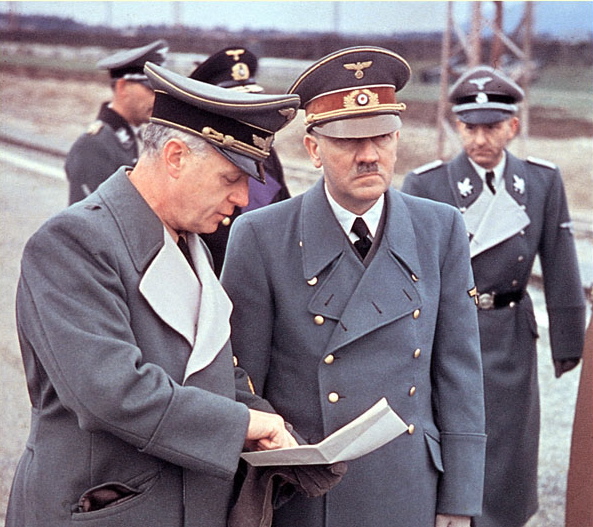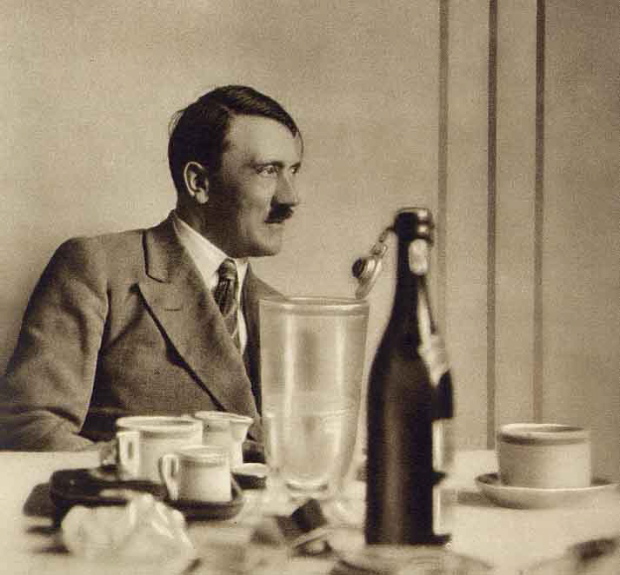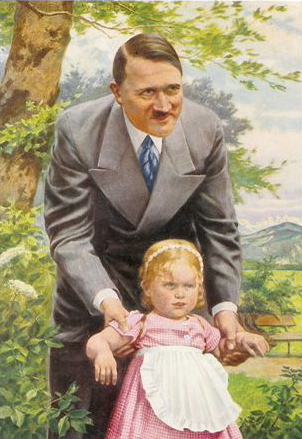
Early
in his career the brilliant but unbalanced British historian David
Irving became convinced that most of the history of WWII as written by
the victors was suspect — infected with a mythology of moral
superiority which wasn't always supported by the actual documentation
available. He set about to correct this.
Irving became an indefatigable researcher, particularly in the German
archives whose contents few historians had mastered. His sense of
sympathy for the Nazi regime also encouraged many German survivors of
the war, or their heirs, to make available to him private documents
which had not been available to other historians.
The result of this was, eventually, an extraordinary book, Hitler's War,
which the great military historian John Keegan has called one of the
essential works of WWII historiography. It is, Keegan says, like
the memoir Hitler never wrote.
The book takes us through the war from inside Hitler's headquarters,
and from Hitler's perspective. It doesn't minimize Hitler's
bloodthirsty ruthlessness, but it offers many instances of the
bloodthirsty ruthlessness of his enemies — the sorts of things that
Hitler might have used to justify his actions in his own mind.
The detail in the book is mind-boggling — it's almost a week by week
record of Hitler's habits, movements, decisions, moods. It's like
viewing all the events of The Lord Of the Rings from inside Mordor.

It can't be said that the book gets us inside Hitler himself, inside
the man. Even his closest associates would admit in later years
that they never managed to do that. He remains an enigma — a
hollow human being. That may have been one source of his power — he
was a vessel in which the mighty currents of history, both good and evil,
could collect. But the book does bring us into his uncanny
presence.
Irving takes care to point out that no hard documentary evidence
exists that Hitler knew of or approved the Final Solution of the
“Jewish problem” as it developed in the last years of the war. Irving uses this gap in the record to
argue that Hitler was in fact unaware of what Himmler was really doing
out in the field. Even Keegan admits that the proposition is
illogical — but for Irving, apparently, it was an important one.
It allowed him to see Hitler as a brilliant monster, along the lines of
Napoleon, say, but not as a demon in human form.

This desire to see Hitler as less than purely evil was, as it turned out, the seed of something darker in Irving,
which has gradually marginalized him as a historian and as a man.
His sympathy for right-wing neo-Nazi movements and his personal racial
prejudice came to the fore. He eventually decided that the
Holocaust, as it's generally understood, did not exist — that the
Final Solution was not a Nazi policy but a series of ad-hoc actions by
local commanders in the final months before Germany's defeat. (In the most recent edition of Hitler's War,
from 2002, Irving has amended the text to reflect his later views of
the Holocaust — so it's worth tracking down an earlier edition if you
plan to read it.)
By allying himself with the lunatic fringe of Holocaust deniers and
neo-Nazis, Irving has become something of a joke, a very unpleasant
joke — and yet . . . the core of his achievement remains. The
massive research supporting Hitler's War,
the vast accumulation of detail in it, is indispensable stuff, even
though it may be presented in the service of unacceptable attitudes and
prejudices. You simply cannot understand WWII without
reading it.
[For Irving's perspective on all this you can visit his web site here.]
